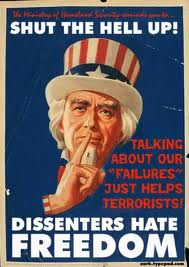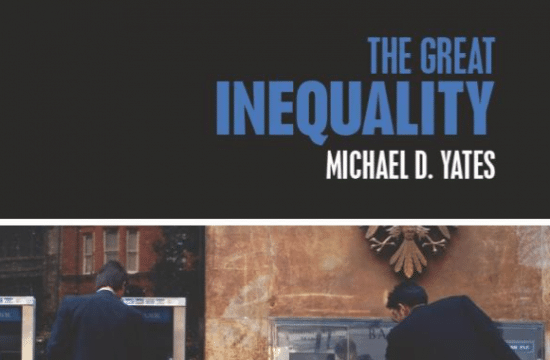The recent defeat of the Scott Walker recall in Wisconsin, an election in which Walker soundly defeated the same Democratic challenger who ran against him when he became governor in 2010, has generated much discussion. Why was the Wisconsin Uprising of early 2011, where hundreds of thousands of Wisconsinites took to the streets and occupied the Capitol building to protest Walker’s attempt to destroy public employee unions and eliminate social welfare programs, diverted by the Democratic Party and labor leaders into a recall effort? Why was the man chosen by the Democrats to run against Walker a person who had himself been an enemy of labor unions and who distanced himself from organized labor every chance he got during the recall campaign? Why didn’t the unions build on the Uprising to reconstitute the state’s labor movement on a more militant and class conscious basis?
Several people, including radical economist and Left Business Observer editor Doug Henwood and Progressive magazine editor Matt Rothschild, took labor leaders to task for not taking advantage of the mass anger and willingness to protest shown by the Uprising. Henwood said,
Suppose instead [of the recall]that the unions had supported a popular campaign—media, door knocking, phone calling—to agitate, educate, and organize on the importance of the labor movement to the maintenance of living standards? If they’d made an argument, broadly and repeatedly, that Walker’s agenda was an attack on the wages and benefits of the majority of the population? That it was designed to remove organized opposition to the power of right-wing money in politics? That would have been more fruitful than this major defeat.[1]
Rothschild said,
Nor were more creative strategies tried. The Teamsters with their 18 wheelers, whose support was so emboldening, could have driven down Interstate 90 and 94 at 45 mph all day long for a week’s time to demonstrate that workers in Wisconsin weren’t going to take this lying down. No coordinated workplace strategies were adopted. Every union in the state could have caught the blue flu, so that workers in one trade after another would call in sick on alternating days. Or unions could have told their members simply to “work to rule”—doing the bare minimum that their contracts required. But none of these options were taken, and the only channel that all of the people’s energy was poured into was the very narrow and murky channel of the Democratic Party. There was a failure of imagination, and a failure of nerve, and a failure of process.[2]
For this, Henwood, Rothschild, and those of us who agree with them, have been subjected to sharp criticism. Gordon Lafer, professor at the University of Oregon’s Labor Education and Research Center, called Henwood, et. al. “anti-labor leftists” who don’t understand that organizing is slow, difficult, incremental work, that unions have primary responsibility to protect their own members, and that labor must engage in politics.[3] Labor had the choice in Wisconsin of going for the recall or throwing in the towel. Henwood’s and Rothschild’s suggestions are just so much pie in the sky, offered by outside commentators who aren’t serious about organizing and don’t know what they are talking about. It is the slow, painful, incremental organizing that, in the end, radicalizes workers.
Corey Robin, professor at Brooklyn College, agreed with his “comrade” Lafer, accusing those who pointed out Lafer’s close ties to top labor and Democratic Party leadership of making ad hominem attacks. Robin got on his high horse and penned a blog post asking us to imagine how difficult it is to organize people to take risky actions. We “anti-labor leftists” simply don’t comprehend the wealth and power of employers and the hostility toward workers of the government. When we point to such things as the high salaries of union leaders and their sometimes corrupt practices as reasons for labor’s decline, we are making an irrelevant argument.[4]
The acerbic Adolph L. Reed, Jr, professor at the University of Pennsylvania and cofounder of the stillborn Labor Party, put the icing on the cake, unambiguously endorsing the views of his friends Lafer and Robin, not only reiterating the “anti-labor leftist” charge, but accusing us of scapegoating labor for Walker’s victory, of waiting idly by for the “Spark” that will spontaneously ignite working class revolution, and giving aid and comfort to the enemy by having the temerity to criticize the labor movement in public forums![5]
Unfortunately, the errors and omissions of our triumvirate of political science professors are many. For example, they fail to place the difficulty of organizing workers into its full context. Organizing is going to be especially hard when unions have been granting debilitating concessions to employers for more than thirty years. Officers of some of the very public employee unions whose members led the Wisconsin Uprising of 2011 gave major concessions to the Walker government. Henwood correctly points out that unions are not as popular as Lafer thinks they are. Maybe concessions are one reason (along with those high salaries and corrupt practices). What is more, organizing is an ongoing process, which doesn’t end when a union has won a representation election. How will a local union become a fighting force when its leaders agree to two-tier wage agreements, and a new hire earns half as much as his more senior workmate for doing the same tasks? If my neighbor tells me that solidarity went out the window in his union, why would I want to join it?
Lafer asserts and Robin agrees (perhaps Reed does too, given the stridency of his support for his colleagues and disdain for the “anti-labor leftists”) that labor can’t abandon politics and in Wisconsin had to choose between trying to recall Walker and throwing in the towel. Not only is the recall versus capitulation a false dichotomy if ever there was one, but these scholars of the labor movement ought to know that there is the politics of a recall in which both candidates are hostile to organized labor, and there is the politics of building a labor movement, independent of Republicans and Democrats.
Let’s look more deeply into the difficulty of organizing and the dangers workers face when they try to form a union. Robin’s blog post sounded good on first reading. But then I began to think, isn’t nearly everything hard. It’s hard to organize people, knock on doors, talk to those with whom you don’t agree but whose support you need, write an article much less a book, raise kids, do most any kind of work. Yet, people do hard things all the time. Take risks too. When one thing doesn’t work, you try another, even if it takes a lot of effort and is risky.
Some labor leaders used to know this. When AFL-CIO president Richard Trumka was leading the United Mine Workers and spearheading the strike at Pittston Coal Company, he led an occupation of the mine. Other tactics weren’t working. Something like a quadrillion dollars in fines were levied against the union. But it won the strike. His famous union forefather John L. Lewis was a conservative, but he hired communists to organize and made peace with radical rival John Brophy, once his enemy. Today, Trumka talks, while the house of labor burns. Where is the action? Phone banking and house calling for Walker’s opponent, a guy who took labor’s money but ran away from labor’s support at every opportunity? Doing the same for Obama? Life is too short to waste on such trivial pursuits. As Dr. Phil says, “How’s that going for you?” Is it scapegoating or much needed and honest criticism to say, “Well, Brother Trumka, what you are doing isn’t working? Do something else.” Rank-and-file insurgents like Jerry Tucker and Gregg Shotwell[6] have been saying this to UAW leaders for years. Are they scapegoating? Isn’t the burden of proof on those who run the one-party state UAW to explain to the members why there is so little democracy in the union, why staff have better benefits than those who do the work, why there has never been a public accounting to the membership of the hundreds of millions of dollars in “jointness funds” paid by the corporations and used to create thousands of sinecures for union staff.
Workers will take chances too, even losing a job, when there is something worth fighting for. I put my own employment in jeopardy many times in union organizing campaigns when I was a young teacher, campaigns not just for teachers but for custodians, grounds keepers, and maintenance workers. Vietnam awaited me had I been fired. But our cause was just, and our leadership was radical and democratically chosen, with the aim of doing nothing less than democratizing the university. We never hesitated to put our jobs and careers on the line.
Similarly, I once had a group of steelworkers in a collective bargaining class. Their local leadership, in cahoots with District staffers, gave their (profitable) employer unnecessary mid-contract concessions. The members were outraged. My students taped every class, took what they learned, and, through good organization of the members, defeated the incumbents in local elections. An aroused and empowered rank and file soon forced the company to rescind the concessions. They took risks because their cause was just and they had a chance to succeed. They did that hard work.
No one will commit to demanding endeavors like building a union and a labor movement unless principles worth fighting for underlie them. What are labor’s principles? What will leaders fight for, with every weapon at their disposal? If anyone can tell me, please do. Our labor leaders won’t wage war for national healthcare, the expansion of social security, or reform of our horrendous labor laws. The teachers’ unions won’t even go to the wall to end the insane testing of our children and the gutting of our public schools. Endless concessions, two-tier wage agreements, costly turf wars, limited internal democracy, little or no member education, labor-management cooperation, all of these actions (or inactions), engaged in by most of our unions, are poor excuses for principles. Not many workers are going to go all-out to win them.
By Reed’s standards, this essay no doubt gives aid and comfort to the enemy. So be it. For me, not criticizing those who should know better, who claim the mantle of all of the labor stalwarts of the past, would be to dishonor every poor working stiff in my own extended family–miners, steelworkers, secretaries, clerical workers, glass workers, construction laborers, hospital workers, plumbers, homemakers, all those men and women who did shit work all their lives.
Former economist for the Canadian Auto Workers and eminent labor scholar and left-wing organizer, Sam Gindin, says that the labor movement cannot be rebuilt without a strong left. This means that the task at hand is to revitalize the left, to make it relevant to the lives of the working class. He puts it this way:
What a left has to offer is making connections between people across workplaces, bringing in a class analysis so they see it’s not just them. They can never win if it’s just a few of them against the state. They have to see there’s actually a class involved here. Giving them some alternatives, you know, giving them some historical memory, so they see how workers did this—in fact in more difficult circumstances in the past. Giving them some comparative analysis of what’s going on in Greece and elsewhere—how did people organize. So the left can play that role, in terms of bringing a class perspective, resources, memory into the picture. The truth is the left that we have now isn’t capable of doing that. So I think one of the questions that comes out of Wisconsin is not just “what’s wrong with unions?” but “what kind of a left could actually do that?”[7]
You won’t find much help answering these questions in the Wisconsin pronouncements of Lafer, Robin, and Reed. Let me add that a vibrant left would be there to help channel something like the Wisconsin Uprising into a long-term confrontation with capital. Because contrary to professor Reed’s blathering about the Spark, revolts can and do arise unexpectedly. When they do, that slow patient organizing of workers into collective bargaining units won’t do the trick, unless there is a left inside and outside the unions, always educating, radically.
Corey Robin made a particular point of chastising the “anti-labor leftists” for failing to provide clear alternatives to Lafer’s argument that unions should continue to do what they have been doing, only more of it and better. Of course, it might seem to most people that it is incumbent upon them to explain why their model has failed so spectacularly. And Reed spent years trying to organize the Labor Party, to pretty much no effect, so shouldn’t he have explained why the great promise the Labor Party showed never materialized. Perhaps the reason they didn’t do these things is because honest inquiry would force them to confront the many roadblocks unions and labor leaders have established to prevent the building of new structures of resistance to the rule of capital.
Still, it is a fair question to ask critics of labor to offer at least some elements of a new strategy. I will review some suggestions made by organizers and scholars in another article. Here, let me say, first, that Henwood and Rothschild did make pertinent remarks on what labor might have done in Wisconsin, while their critics have not. Second, the Sam Gindin interview contains several interesting propositions worth pursuing. Third, Labor Notes writer Mark Brenner recently offered a variety of actions local union members can take.[8] Fourth, Bill Fletcher Jr. and Jane McAlevey have provided excellent proposals for labor education.[9] Fifth, master organizer Fernando Gapasin has actually implemented an action plan, which he calls “communities of solidarity” in the unlikely terrain of Eastern Oregon.[10] Finally, readers might find it worthwhile to read the histories (here, here, and here for three good books) of the left-led unions in the United States, whose expulsion by the immediate predecessors of today’s labor chieftains corresponded with the beginning of the long decline of the labor movement as a force for working class empowerment.[11]
[1] http://lbo-news.com/2012/06/06/walkers-victory-un-sugar-coated/
[2] http://progressive.org/accountability_in_defeat_in_wis.html
[3] http://www.thenation.com/blog/168435/opinionnation-labors-bad-recall#. There are several essays here, including the one by Adolph Reed referred to in this article, along with replies to Lafer by Doug Henwood and Mike Elk, both well worth reading. Elk’s comments about the United Electrical Workers union, referred to in somewhat inacccurate terms by Lafer, are especially pertinent. Lafer makes the remarks about his critics being persons not serious about organizing in emails obtained by the author.
[4] All of Robin’s comments can be found at his blog site: http://coreyrobin.com.
[5] See Reed’s rather astonishing essay at http://www.thenation.com/blog/168435/opinionnation-labors-bad-recall#.
[6] Gregg Shotwell’s book, Autoworkers Under the Gun (Haymarket Books, 2012) is must reading for those who believe that our national unions might someday reform themselves.
[7] http:/./lbo-news.com/2012/06/18/sam-gindin-on-the-crisis-in-labor/
[8] http://labornotes.org/2012/06/are-we-tipping-point
[9] http://www.thenation.com/blog/168435/opinionnation-labors-bad-recall#
[10] “Building Communities of Solidarity from Madison to Bend,” in Michael D. Yates, editor, Wisconsin Uprising: Labor Fights Back (New York: Monthly Review Press, 2012).
[11] A good place to start is Roger Horowitz, “Negro and White, Unite and Fight”: A Social History of Industrial Unionism in Meatpacking, 1930-90 (Urbana and Chicago: University of Illinois Press, 1997). Also, Steven J. Rosswurm, editor, The CIO’s Left-Led Unions (New Brunswick, NJ: Rutgers University Press, 1992). Maurice Zeitlin and Judith Stepan-Norris have done pioneering work on the left-led unions, showing that they were, in most major respects, superior in performance to their more conservative rivals. See Left Out: Reds and America’s Industrial Unions (New York: Cambridge University Press, 2002).







I think the anti-labor left thinks that (a) unions cannot achieve anything for workers in the current situation, and that unions are rightwing or reformist-led, (b) that the radical or revolutionary left is too weak to have any influence in the unions, (c) that the people who join unions aren’t particularly radical or leftwing. It seems to follow from this, that leftists shouldn’t be involved in unions, because it is a futile activity – their time is better spent decrying capitalism, in being job-mobile, or in the alternative circuits. But this overlooks why workers join unions and stick with them – they do it, not for a joke, but in defence of their wages, their dignity and conditions of work; because they think, at the very least, that in the long run they will be worse off, if they don’t join. It’s peculiar that people who don’t even support workers in this basic sense, want workers to support their own preferred political brand… Personally I’ve quit a union one time over a dispute, but I would not say I am anti-union. When we actually look at how well the academics can predict outbursts of worker militancy, we can confidently say, that they’ve got it wrong most of the time. Hardly surprising, insofar as they are detached, if not remote, from the life-situations which workers face! The least they could do, is support workers in their desire to organize – without necessarily saying this is the only thing there is…
PS – my sincerely condolences again, to you. Right now you probably have other things on your mind.
A strong left depends on the class conscious understanding that wage-labour is inherently exploitive.
To Mike Ballard: if this anarcho-syndicalist jabberblabber is true, then that would be great. Namely, then all the radical experts need to do to create a strong Left, is to educate people in the fact that wage labour is exploitative. The problem is really twofold: (1) workers know very well that they are exploited, and (2) the radical experts (including the anarcho-syndicalist jabberblabber experts) don’t really know anything much about how workers are exploited. The real reason why the left is weak, is because its theories are either false, or disconnected from the reality to which they refer.